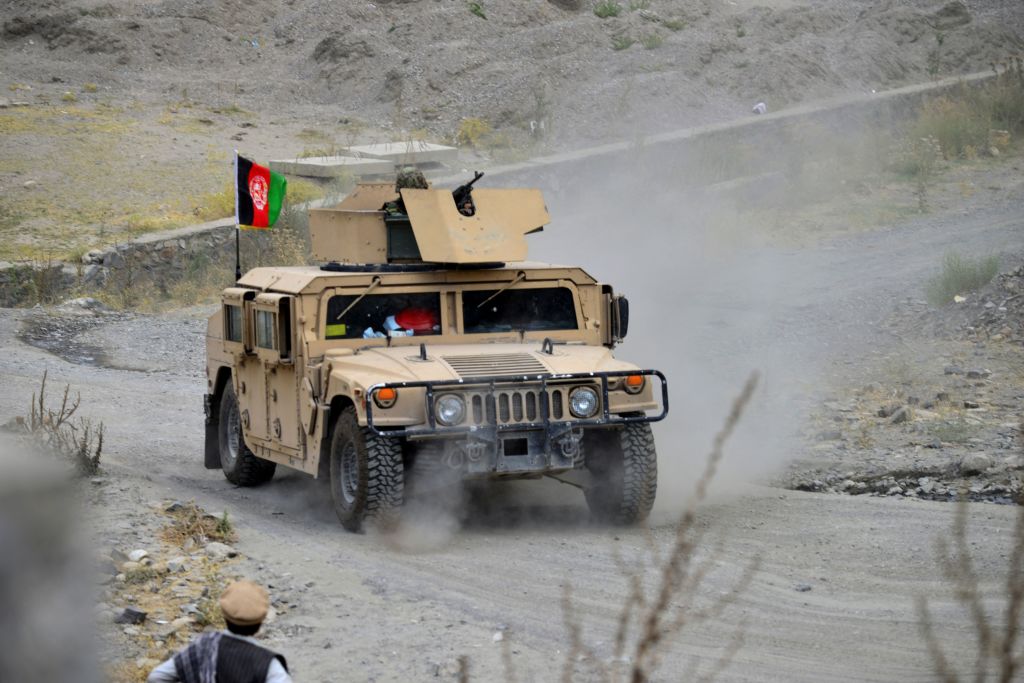- Thursday, April 18, 2024

By: Shubham Ghosh
THE pull-out of the US-led western forces from Afghanistan has created opportunities for other players to make inroads into the country having rich mineral resources but the political instability could jeopardise the plans.
China, for instance, could aim at developing resource projects in Afghanistan under Taliban rule, according to sources in the media and industry, but security challenges could affect plans to grow the infrastructure to utilise such projects.
Afghanistan has a large reserve for lithium, a component used in electric vehicles that will expected to dominate automobile market in the near future. Utilisation of the rich deposits of lithium could pave way for the violence-devastated country’s economic uplift. But political instability remains Afghanistan’s biggest enemy, something that has ruined foreign investors’ interest in the country.
ALSO READ: Kashmir ‘bilateral, internal issue’, say Taliban
“I wouldn’t and couldn’t invest in Afghanistan with the Taliban running the country. It’s lawless,” Ben Cleary, the chief executive of Australia-based Tribeca Investment Partners, which runs a global natural resources fund and finances mining projects, was quoted as saying by Reuters.
Clearly said he couldn’t see any companies listed in countries like Canada or the US beside Australia having a mandate to buy assets in Australia. He said the only potential buyer could be China.
However, the Chinese foreign ministry recently said that durable peace and stability were key for potential investors across nations when it comes to Afghanistan. On Tuesday (17), China’s state-owned tabloid Global Times said while noting security concerns that China could contribute to post-war reconstruction in Afghanistan and resume projects that are stalled there.
Taliban takeover will hit India-Afghanistan trade: Exporters
The tabloid also cited an unnamed Metallurgical Corp of China (MCC) source to say that the company would consider reopening Afghanistan’s largest copper project once the situation stabilised in the country and the Taliban regime gets international recognition, including from the government in Beijing, Reuters added.
A consortium of MCC and Jiangxi Copper took out a 30-year lease for the project – the Mes Aynak mine – but it remains undeveloped since 2008.
“It is impossible to push forward the project without a safe environment,” the source said.
The Chinese foreign ministry said that it saw the Taliban promising to create an environment conducive for foreign investment.
“We hope that the situation in Afghanistan will transition smoothly, and an open and inclusive political structure will be established so that no terrorist organisation will be able to take advantage of it,” the ministry added in a statement to Reuters.
Potential human rights abuses under the Taliban, who returned to power in Afghanistan after almost two decades, could be another hurdle to investment in resources that also include gold, bauxite, uranium, coal, natural gas, iron ore, etc. China so far has few projects in those sectors and hence has a lot to gain.
“I think most of the world’s financial system is applying some fairly stringent ESG (environmental, social and governance) lenses now over investments in that (resources) sector,” ANZ senior commodity strategist Daniel Hynes told Reuters in Sydney.
“It would be a pretty difficult project to get underway considering all the hurdles,” he added.
There are already examples of projects pulling out of Afghanistan.
China’s state-owned China Natural Petroleum Corp (CNPC) is exiting its oil project in the northern Amu Darya Basin, Reuters learned last week and its sources said the CNPC sees the investment as a failure. The project has faced challenges including attacks from local militants.
An Indian consortium led by Steel Authority of India is also withdrawing from Afghanistan.
It was building a steel mill and developing iron ore mines in Afghanistan at a total investment of $11 billion in 2011 but it has been shelved owing to poor iron-ore quality and absence of security for the employees’ safety, an official at SAIL said.
![]()